
How Countries Are Integrating AI Into School Curriculums — Is India Falling Behind?
Countries worldwide are increasingly integrating artificial intelligence (AI) into school curriculums to prepare students for a tech-driven future, focusing on AI literacy, critical thinking, and practical skills. Selecting the best Artificial Intelligence course in India matters a lot.
Here’s an overview of how various nations are approaching this, based on recent trends and initiatives as of June 09, 2025.
Developed and developing countries of the world are now recognizing the importance of Artificial Intelligence course. So, country like India too is focussing its attention towards artificial Intelligence course in India to meet the current requirements.
Table of Contents
Different Countries That Are Integrating AI Into School Curriculums
There are several countries that make integration with AI tools in their school curriculums. In this article, you will get the complete idea into it. Artificial course in India is getting massive hype in upcoming days. So, you must be well aware off it.
1. China
-
Approach: China is aggressively embedding AI into education at all levels to fuel technological dominance and build a “strong-education nation” by 2035.
-
Details:
-
- Mandatory Curriculum: From September 2025, AI is a compulsory subject for primary and secondary students, with at least 8 hours of instruction per year. Elementary students learn basics like voice recognition and robotics, while older students explore machine learning and algorithm building.
- Textbooks & Methods: AI is woven into textbooks, teaching methodologies, and national curricula, emphasizing hands-on projects.
- Pilot Programs: The Ministry of Education designated 184 schools as AI education bases to test innovative teaching models.
- Platform: An AI section on the national smart education platform enhances resource accessibility.
- Teacher Training: Extensive training equips educators to deliver AI lessons effectively.
- Goal: Develop critical thinking, digital literacy, and innovation to support an AI-driven economy.
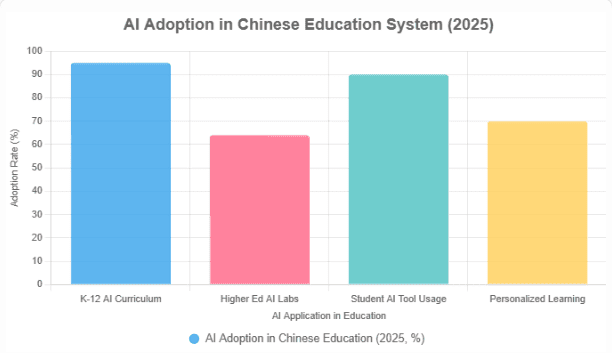
2. South Korea
- Approach: South Korea is investing heavily to integrate AI across all grade levels, aiming for a tech-savvy workforce.
- Details:
-
-
- Curriculum: Since 2021, “AI Education” is an elective in high schools, with some middle schools introducing basic AI in informatics. By 2025, AI coursework is targeted for all grades.
- Content: Students learn AI principles, machine learning basics, and engage in simple AI projects.
- Teacher Development: The Ministry of Education’s Keris unit designs and pilots extensive AI and tech training for teachers.
- Infrastructure: All schools have high-speed internet and smart devices by 2021, supporting AI tools. EDUNET, a national e-learning platform, offers AI-driven personalized learning for millions.
- Facilities: The Future of Education Center provides model classrooms to showcase advanced tech in education.
-
- Goal: Prepare students for an AI-powered world with practical and theoretical skills.
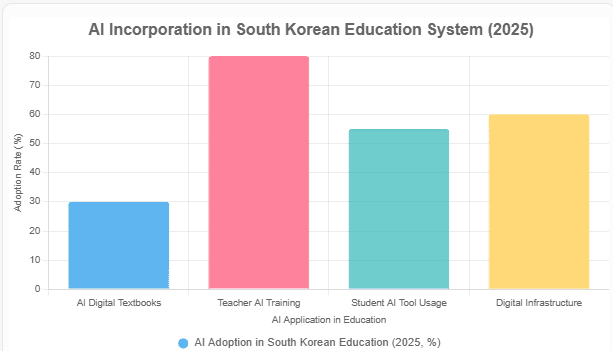
Grow Your Digital Marketing SkillsLearn Practical with Expert Instructors |
|
| Advanced Digital Marketing | |
| More Learning Options for you: Diploma Course | Advanced Diploma Course | Facebook Ads Course |
3. India
- Approach: India is scaling AI education to address literacy, equity, and workforce needs, backed by government and private initiatives.
- Details:
- Curriculum: The 2020 National Education Policy (NEP) emphasizes coding and AI, introducing computational thinking in early grades and AI concepts in secondary schools. State boards (e.g., Tamil Nadu, Karnataka) integrate basic AI into ICT curricula.
- Scale: AI is taught in 200+ schools, with CBSE and Intel’s “AI For All” initiative aiming to train millions.
- Tools: Programs like Mindspark by Educational Initiatives use AI for adaptive learning, improving outcomes.
- Inclusion: AI-driven translation and speech recognition (e.g., Microsoft’s STEM content translation) provide bilingual content for diverse linguistic regions and students with disabilities.
- Training: Mass teacher training initiatives boost AI skills.
- Goal: Universal AI literacy, personalized tutoring, and inclusive education for 260 million students. Latest SEO trends in India are also focusing on AI school curriculum.
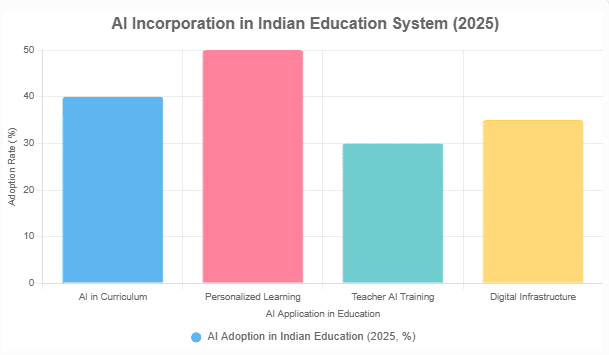
4. Finland
- Approach: Known for its high-quality education, Finland embraces AI to enhance learning and citizen awareness.
- Details:
- Free Coursework: A national commitment offers free online AI courses (e.g., “Elements of AI” by the University of Helsinki, engaging 1.2 million globally) to educate citizens on AI concepts and ethics.
- Platform: About 50% of schools use the ViLLE platform for instant feedback and analytics on assignments, integrating AI tools.
- Focus: Combines teacher-centric systems with AI to personalize learning and provide real-time insights.
- Goal: Build AI literacy and critical skills for all, maintaining educational excellence.
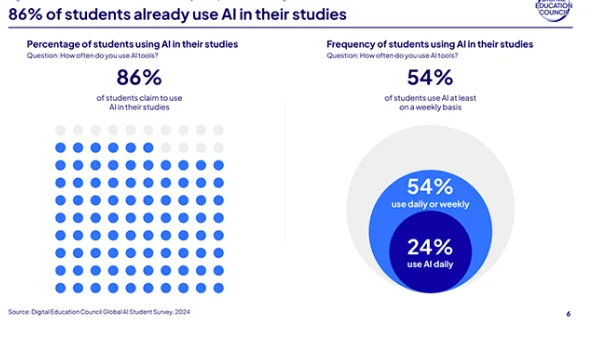
5. Japan
- Approach: Japan is cautiously advancing AI education with guidelines and pilot programs.
- Details:
- Guidelines: The Ministry of Education released AI guidelines in 2023, advising against students presenting AI-generated work as their own while promoting its use for learning.
- Pilots: Select schools test AI integration, exploring curriculum standards and responsible use.
- Focus: Students learn AI basics, ethical implications, and practical applications, balanced with regulatory considerations.
- Goal: Prepare students for an AI-influenced future while ensuring academic integrity.
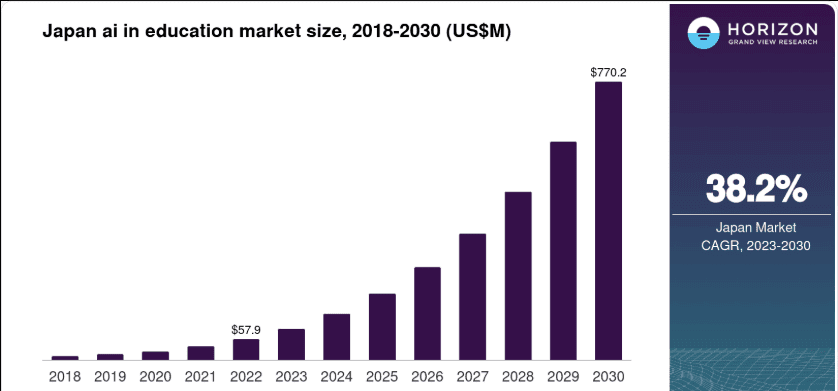
Few related topics for your knowledge
- Top 20 AI Tools for Digital Markеting
- A Revolution Happened in The World of Chatbot, Meta AI Chatbot is Setting New Trend
- Top 20 Digital Marketing Courses In Kolkata With Placement
- How to Make Personal Branding: Top 9 Platforms with Process
- How To Use Google Analytics For SEO? Step By Step Guide For Beginners
6. Estonia
- Approach: Estonia leverages its tech-forward reputation to integrate AI into schools.
- Details:
- Initiative: The “AI Leap 2025” program partners with OpenAI to roll out ChatGPT Edu in secondary schools, starting with 10th and 11th graders by September 2025.
- Implementation: Provides free AI tools and teacher training to enhance lessons and personalize learning.
- Goal: Equip students and educators with AI skills for a digital future.
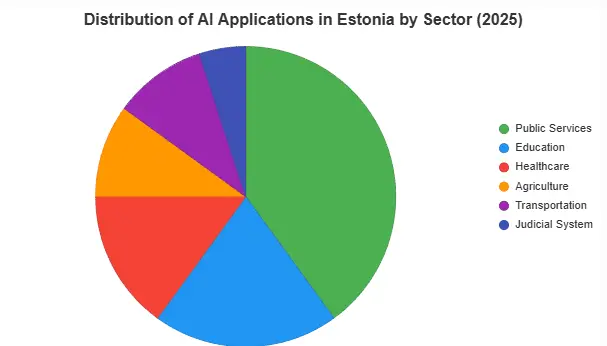
7. Other Regions
- Singapore: Through the AI@NIE five-year plan, the National Institute of Education invests in research and innovation. The AICET center, backed by AI Singapore and the Smart Nation office, collaborates with the Ministry of Education for AI projects.
- Europe: The EU issued AI guidelines in 2021, updated recently, encouraging ethical use. Erasmus+ projects like “I’m not a Robot” and AI4STEM explore AI in early education and STEM, developing toolboxes and frameworks.
- Global South: Pioneers like Nigeria (Edo), South Africa, Rwanda, Brazil (Matto Grosso), and Chile design holistic AI training for teachers and students, though data privacy and access gaps persist within the systems. It can boost the scope of your brand value to a greater level.
What Is The Future Plan Of India In Adding AI Courses In School Curriculums?
India is actively pursuing the integration of Artificial Intelligence (AI) into school curriculums as part of the National Education Policy (NEP) 2020, which emphasizes digital literacy, computational thinking, and skill-based education to prepare students for a technology-driven future. The government aims to equip millions of students with AI skills through phased implementations, teacher training, and innovative tools. Below is a detailed overview of the future plans, drawing from recent initiatives, budget allocations, and state-level efforts.
National Level Initiatives & Frameworks
1. NEP 2020 As The Foundation
The policy recommends introducing AI and coding starting from Class 6, with a focus on personalized learning, AI-based progress tracking software, and adaptive assessments. This includes tools for holistic student development, such as interactive questionnaires for career guidance and support for diverse learning needs, including gifted students. Implementation is ongoing, with the National Educational Technology Forum (NETF) established to promote AI-driven innovations in education.
2. AI Crafted Curriculum By NCERT
In July 2025, NCERT approved India’s first AI-crafted school curriculum for Classes 3-8, covering Mathematics, Science, and Social Science. It features adaptive content, real-time syllabus mapping, interactive modules, personalization, and multilingual support. Piloted under PM eVidya and DIKSHA platforms, it will be rolled out in digital and print formats starting July 2025, with oversight committees and teacher workshops. Future expansions include AI for assessments, career guidance, and learning analytics, addressing challenges like data privacy and the digital divide.
3. SOAR(Skilling For AI Readiness) Initiative
Launched in July 2025 by the government, this program introduces 15-hour modules on AI concepts (e.g., machine learning, natural language processing, neural networks) for Classes 6-12. It aims to build foundational AI literacy and responsible usage among students and educators, with a goal of creating the world’s largest AI-ready school-going population under the Skill India Mission.
4. AI Literacy Curriculum Framework
Launched in May 2025, this framework fosters critical thinking and ethical AI use for school students. Delhi schools adopted it for Classes 6-10 starting May 2025, in partnership with IIT Madras.
5. Budget 2025 Allocations
The Union Budget 2025 allocated ₹500 crore for a Centre of Excellence (CoE) in AI for Education, focusing on AI platforms for personalized learning, adaptive teaching, and assessments. This will support curriculum development and workforce preparation, extending to schools through collaborations with international tech leaders.
6. Year Of AI 2025
Declared by the All India Council for Technical Education (AICTE), this initiative impacts over 14,000 institutions and 40 million students, including faculty training for 5 lakh educators in AI tools. It aligns with UNESCO’s 2025 International Day of Education theme on AI.
FAQ(Frequently Asked Questions)
1. What Are The Eligibility Criteria For Pursuing An AI Course In India After 12th Grade?
Answer: Candidates typically need to have completed 10+2 with Physics and Mathematics as compulsory subjects in the Science stream, with a minimum aggregate score of 50% (varies by institution). For degree programs like BTech in AI, entrance exams like JEE Main or university-specific tests (e.g., LPUNEST) are often required. Certificate or diploma courses may have relaxed criteria, sometimes open to students after Class 10.
2. What Is The Duration And Cost Of AI Courses In India?
Answer: AI course durations vary: certificate programs range from a few weeks to 6 months, diplomas last 6–12 months, and BTech/MTech programs span 2–4 years. Fees depend on the course type and institution—certificate courses cost INR 20,000–1,50,000, while degree programs may range from INR 1 lakh to 4 lakhs or more. Online platforms like Coursera offer free courses (without certificates) or paid ones starting at low costs.
3. Which Institutions Offer The Best AI Courses In India?
Answer: Top institutions include IIT Hyderabad, IIT Jodhpur, Chandigarh University, Sharda University, and Jain University for degree programs. Online platforms like Coursera, Udemy, edX, and Great Learning offer certificate courses. Specialized programs are also available from IABAC, BITS Pilani (WILP), and Henry Harvin, known for industry-aligned curricula and hands-on projects.
4. What Topics Are Covered In AI Courses In India?
Answer: AI courses typically cover machine learning, deep learning, natural language processing (NLP), computer vision, robotics, and data analytics. Additional topics may include Python programming, neural networks, AI ethics, and generative AI. Courses often combine theoretical learning with practical projects to build skills for real-world applications.
5. What Are The Career Prospects After Completing An AI Course In India?
Answer:AI professionals are in high demand, with roles like Data Scientist, Machine Learning Engineer, AI Specialist, Robotics Engineer, and Data Analyst. Entry-level salaries range from INR 6–10 lakhs per annum, while experienced professionals can earn up to INR 30 lakhs or more. Industries like healthcare, finance, retail, and IT are actively hiring AI experts
Final Takeaway
Hence, these are some of the core reasons why Artificial Intelligence course in India is getting so much leverage in the upcoming days. You need to keep your pace with the changing scenario to meet your goals with complete ease.
In this article you will get the complete insight how the world is evolving at a faster pace with the use of AI in their education system. If you want to grow your career in the right direction you then you cannot ignore the importance of AI.
- What Is UGC Marketing: Meaning, Strategies, And Applications - November 14, 2025
- Voice Search Optimization: 30 Essential Tips To Consider - November 7, 2025
- How To Get Lots Of Instagram Followers: A Beginners Guide To Success - October 31, 2025


